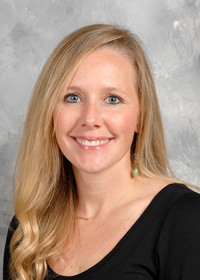Information Possibly Outdated
The information presented on this page was originally released on April 19, 1999. It may not be outdated, but please search our site for more current information. If you plan to quote or reference this information in a publication, please check with the Extension specialist or author before proceeding.
Avoid Scams Aimed At Raising Y2K Fear
MISSISSIPPI STATE -- While some people are making sure all computer systems are ready to handle the millennium date change, others are using the occasion to scam money from unsuspecting people.
With just nine months to go before the year 2000, or Y2K, several scams have surfaced related to this issue. Dr. Dan Brook, head of computer applications for Mississippi State University's Extension Service, said people presented with Y2K problems or solutions should be careful because what is claimed may not be what it seems.
I think the Y2K issue is a prime example of using what might happen as an excuse for folks in the criminal world to prey on the elderly and those with limited knowledge of computers," Brook said.
Brook said many people are being told they have to replace their computer when actually there are other options. Some computers can be upgraded with a new motherboard, a low-cost hardware card can solve other problems and some can continue to be used with an old date. 1972 had the same dates and days as does 2000. Internal computer calendars set to this date may cause user confusion, but the computer will continue to operate correctly.
The U.S. Navy website lists two other Y2K scams. One is a bank account scam, the other a credit card scam being used to rob people of their money. Both are telephone scams.
The bank account scam works when someone calls a potential victim claiming to represent the person's bank and telling them the bank is having trouble preparing for Y2K. The bank customer is told they need to transfer funds to a specially created bond account to protect the money until the bank's computer system is Y2K compliant. The scam artist gains account information this way and is able to transfer the money to themselves.
The Federal Deposit Insurance Corp. states on its website that U.S. banks are readying their computer systems for the date change. The FDIC guarantees that as always, deposits up to $100,000, more in some cases, are protected by the FDIC even if there is a Y2K problem.
"FDIC-insured deposits are safe, just as they always have been," the corporation's website quotes FDIC chairman Donna Tanoue as saying. "The FDIC's protection of insured deposits will not be affected by the year 2000. The FDIC has close to $39 billion in its deposit insurance funds, and FDIC-insured deposits are backed by the full faith and credit of the United States government."
In the credit card scam, a caller advises that a credit card company wants to send a user a new magnetic strip for the card. The caller claims this strip will be glued over the existing strip. The credit card user is asked if their card begins with a certain number, and is then asked for the rest of the number.
Dr. Beverly Howell, Extension family economics specialist, said people can avoid Y2K scams as they avoid all others.
"Always be an alert and cautious consumer," Howell said. "Don't panic and make snap decisions about how to handle a situation."
Determine if an offer is legitimate. If something sounds too good to be true, it probably is. Don't give out personal or financial information to an unfamiliar person. Ask for information in writing when someone claims to represent a financial institution and seeks private information.
"Consult with professionals you do business with and whose judgement you trust," Howell said. "Never feel forced to take immediate action, especially over the telephone, which is often used as a tool for non-legitimate business."
It is always wise to keep financial records for a period of time to check receipts against periodic statements.
While banks should have their record keeping straight for the year 2000, Howell suggested keeping receipts of bank transactions and statements for the last six months of 1999 and the first several of 2000. Check for accuracy, and contact the financial institution immediately if a discrepancy is noted.


